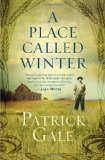Summary | Excerpt | Reviews | Beyond the Book | Readalikes | Genres & Themes | Author Bio

In time, the boys were moved on to Harrow. The school had been picked by their late mother, apparently, because it was smart without being overly intellectual. It would, she believed, make them useful metropolitan contacts while lying reassuringly beyond the reach of their father's former bus routes. Word of how their bills were paid leaked out, however, perhaps via some spiteful teacher, perhaps from Jack's unguarded, trusting chatter.
Although he was the younger, and thus fell naturally under Harry's protection, Jack had always been the stronger and more confident of the two. He faced the world openly, with a sunny faith in others that won everyone's favor in turn. His most habitual phrase was "It's simple." Life for him was as straightforward as a boys' adventure story: people were either good or bad, the right course of action was clear, and good would always triumph. God, being English, meant everything for the best, and the life He gave us was full of rewards if only we buckled under and did our bit. Jack was handsome, good at games, decent, and thus a constant source of worry to Harry, who was sure that at any moment something would happen to shatter his cheerful outlook.
Perhaps because he had been old enough at their mother's death to suffer by it, to have known the pillowy welcome of the boudoir from which he was abruptly banished ever after, Harry was as unlike Jack as their mother had been to their father: wary, fearful, given to brooding. He was not proud, but teasing left him with a horror of humiliation on the playing field and elsewhere, so his defense was to withdraw. He was not a scholar—his brain seemed too sluggish or too dreamy to grasp the things demanded of it—but he was never happier than when left alone among books, and would spend hours turning the pages of atlases, novels or tales from history, alive to the alternative versions of himself they seemed to proffer. He lacked the knack of forging easy friendships but grew habituated to benefiting from the ones Jack was forever striking up.
Jack would never accept defeat in the face of his brother's shyness; it was so alien to his nature that he could not understand it, could not imagine how shyness might feel. As they grew into young men, the younger became as solicitous of the older as the older had been of him when they were boys, so that it was a reflex in him to make room for Harry in any social engagement, in any pleasure or outing. As often as not, his friends would have a retiring sibling in their turn, and so Harry would form not-quite friendships, friendships at one remove, which remained dependent on the generous impulses of his brother. When Jack joined the Harrow cadet force, as was expected of them all, Harry took to terrible fantasies that his brother would sign up for some distant war and be lost to him.
Their mother had left enough money to educate them through university, but Harry could not see the point. The only future he dreamed of—born of visits to friends of Jack's or relatives of their mother—was to live somewhere surrounded by his own land, to have an estate or just a farm.
Jack, by contrast, knew exactly what he wanted. Ironically, he had always been obsessed with horses. He drew them with increasing expertise and knowledge in the margins of his exercise books, read about them, and, like Harry, rose early every morning to ride. They both loved riding, but when they accompanied their father to his cavernous south London stables, it was Jack who reached out to horses, talked to them, and asked questions of the grooms. He swiftly ascertained that horses needed vets and that vets made money, good money. He studied hard and so intently—compared to Harry, who studied with no end in view—that he soon won a place to study at the Royal Veterinary College.
Jack joined Harry at his bachelor lodgings in town. While Jack pursued his course, and came home bright-eyed with the excitement of it all, bringing the faint scent of formaldehyde with him and occasionally a rowdy gang of friends, Harry slipped into a daily pattern of gentlemanly idleness that might have lasted for years. A brisk routine with Indian clubs, a shave at his barber's, a vigorous walk around a park, a visit to the club in which their grandfather had enrolled him—involving the newspapers, a quiet lunch, a digestive read in the library—and then a call on the London and Provincial Turkish baths in Jermyn Street for a bath and massage. Then he would call back to his club for tea before walking back to their lodgings, where he would dine with Jack.
Excerpted from A Place Called Winter by Patrick Gale. Copyright © 2016 by Patrick Gale. Excerpted by permission of Grand Central Publishing. All rights reserved. No part of this excerpt may be reproduced or reprinted without permission in writing from the publisher.
Your guide toexceptional books
BookBrowse seeks out and recommends the best in contemporary fiction and nonfiction—books that not only engage and entertain but also deepen our understanding of ourselves and the world around us.